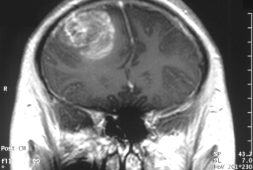
A recent study has found that there is more to Intermittent Fasting (IF) than just losing weight. Apparently, the study discovered that the IF diet is also a very effective way of improving the long-term memory retention in mice. For the researchers, the study’s results are aimed at looking into the potential of slowing down the increase of cognitive decline in elderly human beings.
Researchers from the King’s College London saw how using a calorie-restricted diet that follows an every other day fasting routine was an effective way of encouraging Klotho gene expression in mice. Klotho is also known as the “longevity gene,” and through this study, they found that this gene plays ‘a central role in the production of hippocampal adult-born new neurons or neurogenesis.’
The adult-born hippocampal neurons are very vital for memory formation, and as people get older, the production of these neurons lessen. This also explains why there is some cognitive decline as people age.
The research group took female mice and separated them into three groups. There was a control group that had a daily standard diet of feeding, another group that was placed on a daily Calorie Restricted (CR) diet, while the third group was put on Intermittent Fasting (IF) where the mice were only fed every other day. Notably, the last two groups were also fed 10% calories less than the control group.
Throughout the course of three months, the group of mice on IF showed an ‘improved long-term memory retention’ in comparison to the other two groups. When the scientists looked at the brains of the mice on IF, they noticed right away that the Klotho gene was upregulated, which means that it had an increased response of a cell or organ to a particular stimulus. They saw that the neurogenesis increased also as compared to the mice that were on the CR diet.
According to Dr. Sandrine Thuret from King’s College London, “We now have a significantly greater understanding as to the reasons why intermittent fasting is an effective means of increasing adult neurogenesis. Our results demonstrate that Klotho is not only required, but plays a central role in adult neurogenesis, and suggest that IF is an effective means of improving long-term memory retention in humans.”
Dr. Thuret has older work that has shown just how calorie restricted diets do, in fact, help improve memory function in humans. His previous research showed how IF actually enhances learning processes, as well as positively affect cognitive impairment in older people.
Dr. Gisele Pereira Dias, who is also from King’s College London shared, “In demonstrating that IF is a more effective means of improving long term memory than other calorie-controlled diets, we’ve given ourselves an excellent means of going forwards. To see such significant improvements by lowering the total calorie intake by only 10% shows that there is lot of promise.”
Meanwhile, the research group hopes to recreate a study published in the Molecular Biology journal that includes human respondents in order to better explore the effects of intermittent fasting and its effect on long term memory retention.



